Dr. Julianna Barnes
President | Cuyamaca College
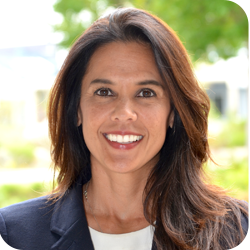 Conversation focus: Rethinking leadership in the current context with the pandemic and racial injustice. You can find more details on the registration form.
Conversation focus: Rethinking leadership in the current context with the pandemic and racial injustice. You can find more details on the registration form.
Bio: Dr. Julianna Barnes is the president of Cuyamaca College, a position she has held since 2015. With an educational career spanning nearly three decades, Dr. Barnes is known for her inclusive leadership and deep commitment to student success and equity. In her tenure as president, she led the creation of a new strategic plan which emphasizes equity-minded student success and promotes a learning environment that validates students' social and cultural realities. Developmental education reform has been central to these strategic efforts and has resulted in significant increases in access to and completion of college-level math and English.
Under Dr. Barnes' leadership, Cuyamaca College was recently recognized nationally by Excelencia in Education and was awarded the John W. Rice Diversity & Equity Award in the California Community Colleges.
Dr. Barnes received her Doctor of Education in educational leadership with a community college specialization and a Master of Arts in education/multicultural counseling, both from San Diego State University, plus a Bachelor of Arts degree in sociology from the University of California, San Diego.
Dr. Kristi Blackburn
Interim Vice President of Pathways Innovation & Institutional Effectiveness| Los Angeles Community College District
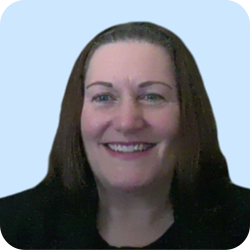 Conversation focus: Starting conversations about race, Culturally Responsive Teaching, and getting beyond the data. You can find more details on the registration form.
Conversation focus: Starting conversations about race, Culturally Responsive Teaching, and getting beyond the data. You can find more details on the registration form.
Bio: Dr. Kristi Blackburn has worked in the California Community College system for 15 years as a Dean of Academic Affairs, Dean of Institutional Effectiveness, Research and Planning, and as an Interim Vice President of Pathways Innovation and Institutional Effectiveness. Prior to living in California, she held a full-time tenure-track teaching position at Dona Ana Community College. Dr. Blackburn also worked in student services at New Mexico State University as the NCAA Life Skills Program Coordinator/Athletics Advisor and as the Assistant Advising Coordinator for the College of Health and Social Services. She has worked at designated Hispanic-Serving Institutions (HSIs) for over 20 years.
Dr. Blackburn earned an M.A. in Communication Studies (1993), and Ph.D. in Psychology (2008). Her dissertation topic was: The Impact of Freshman Year Experience Courses on Latino/Latina Students Attending Hispanic Serving Institutions.
Linda Collins
Founder and Executive Director | Career Ladders Project
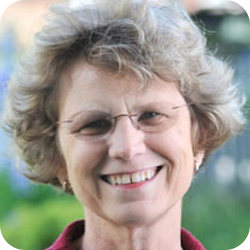 Conversation focus: Learning from and leveraging this moment of racial reckoning and organizational fluidity to truly restructure and redesign our colleges. You can find more details on the registration form.
Conversation focus: Learning from and leveraging this moment of racial reckoning and organizational fluidity to truly restructure and redesign our colleges. You can find more details on the registration form.
Bio: Linda Collins is Founder and Executive Director of the Career Ladders Project (CLP), a non-profit that promotes equity-minded community college redesign. CLP’s policy work, research, and collaboration with colleges focus on systems change so more students—particularly students of color and low-income students—attain certificates, degrees, transfer, and career advancement.
Linda has provided leadership on many reform initiatives. Currently, Linda works with the California Community College (CCC) system and colleges across California to support Guided Pathways efforts. She serves on the Board of the Linked Learning Alliance and as President of the Board for the non-partisan California EDGE Coalition. Linda also founded LearningWorks, linking knowledge, policy, and practice to improve student achievement.
Linda frequently advises on state and national policy efforts. She served as an expert advisor to CDE’s Adult Education Strategic Planning Initiative; the U.S. Department of Education’s Policy-to-Performance Initiative to transition adult learners to college and career; and the national Alliance for Quality Career Pathways effort.
Previously, Linda served as President of the Academic Senate for CCCs, and taught sociology and interdisciplinary studies at Los Medanos College.
Dr. Darla Cooper
Executive Director | The RP Group
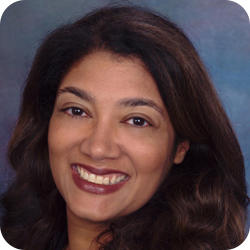 Conversation focus: Discussion with two veteran faculty members about how they have adapted their teaching in the time of COVID and gained new insights into and empathy for what it must be like for students to navigate their community college experience. You can find more details on the registration form.
Conversation focus: Discussion with two veteran faculty members about how they have adapted their teaching in the time of COVID and gained new insights into and empathy for what it must be like for students to navigate their community college experience. You can find more details on the registration form.
Bio: Dr. Darla M. Cooper is an educational leader and expert in research and evaluation dedicated to using inquiry, data, and evidence to improve the lives of all community college students. She currently serves as the Executive Director for the Research and Planning Group for the California Community Colleges (RP Group).
Dr. Cooper has worked in the California Community Colleges system for over 20 years, having previously held institutional research director positions at Santa Barbara City College, Oxnard College, and Ohlone College. She led Student Support (Re)defined, a landmark research project that examined what supports student success, and is currently co-directing Through the Gate, a research study that examines what happens with students who appear ready to transfer, but do not.
Dr. Cooper has worked on various projects designed to promote student success including the American Association of Community Colleges’ (AACC) Pathways Project and Aspen Prize for Community College Excellence. She also has direct experience assisting students in achieving their educational goals in her previous work at the University of Southern California as a director of research and information, student services counselor, and ombudsperson.
Dr. Cooper holds a BA in Psychology from the University of California, San Diego, and an MSEd and EdD from the University of Southern California.
Dr. Deborah Harrington
Executive Director | California Community Colleges’ Success Network (3CNS)
Dean of Student Success | Los Angeles Community College District
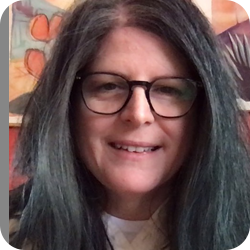 Conversation focus: Steps community college professionals can and should take to design educational experiences that proactively meet students where they are in light of the Covid-era economic impact, social displacement, and large-scale call to action to enact explicitly anti-racist reforms. You can find more details on the registration form.
Conversation focus: Steps community college professionals can and should take to design educational experiences that proactively meet students where they are in light of the Covid-era economic impact, social displacement, and large-scale call to action to enact explicitly anti-racist reforms. You can find more details on the registration form.
Bio: Dr. Deborah L. Harrington is the Dean of Student Success for the Los Angeles Community College District (LACCD) and the Executive Director for the California Community Colleges’ Success Network (3CSN). Dr. Harrington’s district office oversees the implementation of the LA College Promise across the LA District’s nine colleges and provides resources, leadership, and support for other significant district-wide student completion efforts such as Guided Pathways.
3CSN’s communities of practice are nationally recognized as research-driven initiatives resulting in significant increases in student achievement. With extensive experience teaching and administering during the past three and a half decades, Dr. Harrington has additionally served as Writing Center Director, Dean for Institutional Effectiveness, and Vice President of Academic Affairs. She serves on several statewide committees and has helped lead national and state efforts to improve student access, success, and equity.
Dr. Harrington holds a Doctorate in Education from the University of California, Los Angeles; a Master’s Degree in English from California State University, Northridge; a B.A. in English from UCLA; and an A.A. in Humanities from College of the Canyons.
Dr. John Hetts
Visiting Executive, Research and Data | California Community Colleges Chancellor’s Office
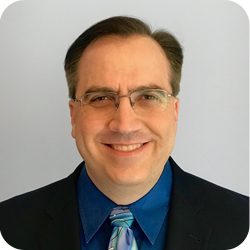 Conversation focus: Reflections on lessons learned about systemic and structural paternalism and racism in education and more. You can find more details on the registration form.
Conversation focus: Reflections on lessons learned about systemic and structural paternalism and racism in education and more. You can find more details on the registration form.
Bio: John J. Hetts, Ph.D., is the Visiting Executive, Research, and Data for the California Community Colleges. He has a history of working on challenging local and system-wide research and data representation with nearly thirty years of experience in both instruction and research in higher education. Dr. Hetts leads the statewide Student Metrics Workgroup and is also a member of the Multiple Measures Assessment Project (MMAP) research team and the Cradle to Career Research Subcommittee, and is formerly a member of the AB705 Implementation Workgroup, the California Guided Pathways Advisory Committee, and the statewide Multiple Measures Subgroup of the Common Assessment Initiative. He is also a Complete College America Fellow and a California Educational Policy Fellow.
Previously, Dr. Hetts was the Senior Director of Data Science for Educational Results Partnership, which runs the statewide voluntary intersegmental educational system of data, CALPASS Plus. Prior to that, he was the Director of Institutional Research at Long Beach City College. He and his team members have won multiple awards for their work on predictive modeling and on MMAP. Dr. Hetts received his doctorate from UCLA in Social Psychology with a specialization in Measurement and Psychometrics and Political Psychology and holds a B.A. with Distinction and Honors from Stanford University.
Dr. Cynthia Olivo
Assistant Superintendent/Vice President of Student Services | Pasadena City College
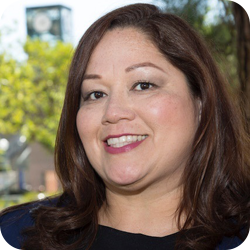 Conversation focus: How to build a culture in a campus community to focus on racial equity and change college practices to be more in line with what students need from us. You can find more details on the registration form.
Conversation focus: How to build a culture in a campus community to focus on racial equity and change college practices to be more in line with what students need from us. You can find more details on the registration form.
Bio: Dr. Cynthia Olivo serves as the Vice President of Student Services at Pasadena City College (PCC). Initiatives include collaborating to create a large scale First Year Experience Pathways Program, PCC Complete Graduation Initiative, Student Equity leadership to transform teaching, hiring, and services to students. Dr. Olivo led the creation of a Veterans Resource Center and the LancerPantry, the QUEST Center for Queer + Undocumented Empowerment & Support to Thrive, and CORE (Communities Overcoming Recidivism through Education). She is currently leading these projects: Integrated Welcome Center, Foster Youth Center, and providing strategic vision in creating the Center for Student Equity & Professional Development.
Dr. Olivo served as the President of the Chief Student Services Officer Association in 2019-2020 and is the President of a new statewide association COLEGAS—California Community College Organizacion de Latinx Guidance, Empowerment & Advocacy for Success. She is a founding member of The Coalition, an organization including the African American Male Education Network & Development, the Association of Asian Pacific Americans in Higher Education, and COLEGAS to address racial equity. In addition, Dr. Olivo is a member of the National Policy & Leadership Trust for Jobs for the Future and serves on the Executive Board for the National Community College Hispanic Council.
Dr. Olivo earned her BA in Psychology and a Master of Science in Counseling from California State University San Bernardino and earned her Ph.D. in Education with an emphasis in Urban Leadership from Claremont Graduate University in 2008. Dr. Olivo is the granddaughter of migrant farmworkers, daughter of an amazing single mom, first in her family to go to college, and third generation Chicana.
Dr. Rowena Tomaneng
President | San Jose City College
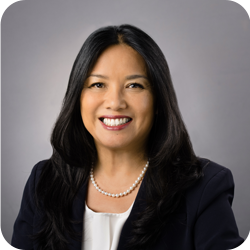 Conversation focus: The impact that a humanizing education may have on the academic and social success of students of color. You can find more details on the registration form.
Conversation focus: The impact that a humanizing education may have on the academic and social success of students of color. You can find more details on the registration form.
Bio: Dr. Rowena M. Tomaneng's leadership, teaching, service, and research are guided by social justice and equity frameworks. She is currently the President of San Jose City College in the San Jose-Evergreen Community College District.
From 2016-2020, Dr. Tomaneng served as the President of Berkeley City College where she launched The Berkeley Promise--a partnership between the City of Berkeley, Berkeley Unified School District, Berkeley City College, and Berkeley Community Fund to close the racial opportunity gap for low-income African American, Asian American, and Latino students. She also expanded the Undocumented Community Resource Center, a Define American chapter. Prior to her presidencies, Dr. Tomaneng served in multiple roles at De Anza College in the Foothill-De Anza Community College District.
Dr. Tomaneng is a Board member of the Chief Executive Officers of the California Community Colleges (CEOCCC), Asian Pacific Americans in Higher Education (APAHE), the National Asian Pacific Islander Council (NAPIC-AACC), and California Campus Compact. She also serves as a co-Chair for Community Colleges for Democracy (CC4D) and is a member of the American Association of Community Colleges' Commission on Diversity, Inclusion, and Equity.
Dr. Tomaneng has been selected for multiple Fellowships and has written and contributed to a variety of publications including the Journal of Multicultural Perspectives.
Dr. Tomaneng received her EdD in International/Multicultural Education with a concentration in Human Rights Education from University of San Francisco, an MA in English from University of California, Santa Barbara, and a BA in English from University of California, Irvine.
Dr. Matt Wetstein
President | Cabrillo College
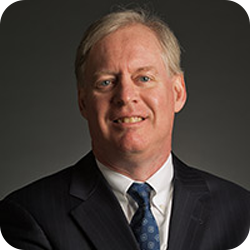 Conversation focus: How to connect with students in light of the pandemic and reflecting on the scope of reforms that we are seeking to implement in new modalities and the ways that we can learn from our on-going failures and successes. You can find more details on the registration form.
Conversation focus: How to connect with students in light of the pandemic and reflecting on the scope of reforms that we are seeking to implement in new modalities and the ways that we can learn from our on-going failures and successes. You can find more details on the registration form.
Bio: Dr. Matt Wetstein has been Superintendent/President of Cabrillo College since 2018. Prior to working at Cabrillo, he served for 6 years as the Assistant Superintendent/Vice President of Instruction and Planning at San Joaquin Delta College in Stockton, CA. Dr. Wetstein started his career in the California Community Colleges as a Political Science Instructor at San Joaquin Delta College in 1996. He is a statewide leader in the Research and Planning Community for California Community Colleges, having spent six years on the RP Group Board of Directors and two years as President. Dr. Wetstein and his wife Cindy Ostberg have published a number of articles and books examining patterns of judicial behavior in the Supreme Court of Canada. He holds a BA from the University of St. Francis in Illinois, and a Masters and Ph.D. in Political Science from Northern Illinois University.